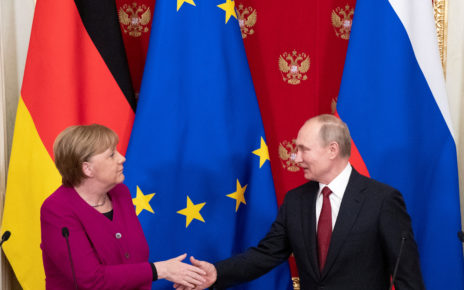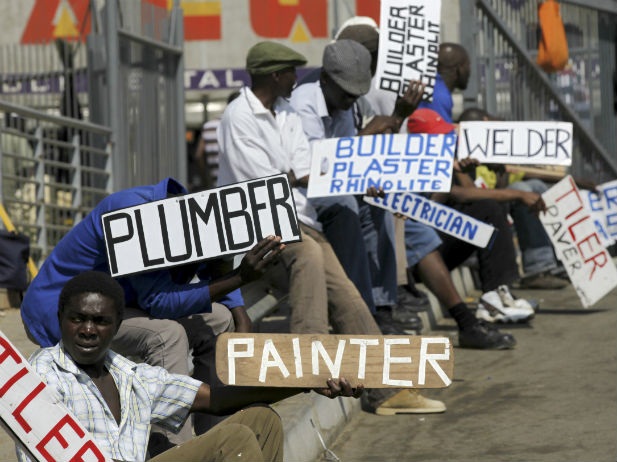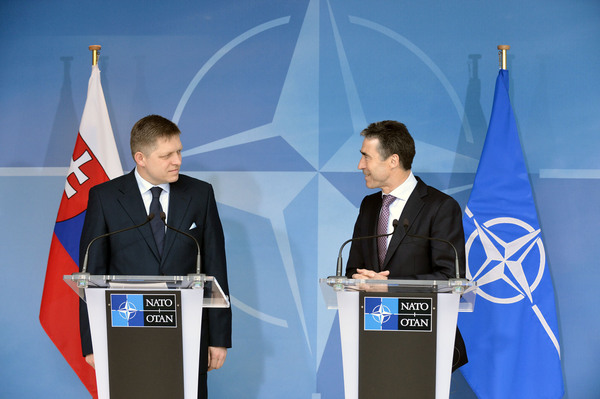The government of Ukraine indicated this week that it was preparing to release Yulia Tymoshenko, an opposition leader and former Prime Minister, from prison for medical treatment abroad. The news comes days after the European Union (EU) made Tymoshenko’s release a condition for the conclusion of a much-discussed Association Agreement between EU and Ukraine.
The Association Agreement would see Ukraine become an integrated constituent of the EU’s free trade zone, and was signed in draft form this September. In addition to trade regulation harmonization, it requires that Ukraine enact legal reforms bringing the country towards a more transparent governance structure. In fact, the agreement includes specific schedules for the implementation of such legislation. A majority of Ukraine’s political leadership is eager to see the deal concluded this November at a summit in Vilnius, Lithuania, citing economic and political benefits and closer ties with Western Europe.
[captionpix align=”right” theme=”elegant” width=”275″ imgsrc=”http://natoassociation.ca/wp-content/uploads/2013/10/eu-ukraine.si_1.jpg” captiontext=”Ukrainian president Viktor Yanukovych discusses the EU-Ukraine Association Agreement in Brussels”]
Unfortunately, Russian leaders are convinced that this Association Agreement comes at their expense. For years, Russia has made efforts to draw Ukraine – the world’s second largest importer of Russian goods and third largest market for Russian exports – into its own trade bloc, called simply, “The Customs Union”. Established in 2010, the Customs Union makes a single economic space between Russia, Belarus, and Kazakhstan. Armenia and Kyrgzstan are expected to join shortly. The United States has openly opposed the agreement. In 2012, Secretary of State Hillary Clinton called it an attempt to “re-sovietize” Eurasia.
Moscow is deeply unhappy about the perceived Ukrainian defection towards Brussels, and is engaging in a series of last-ditch efforts to “torpedo” the EU deal and drag Ukraine into its own agreement. In July, it banned chocolate imports from one of Ukraine’s largest confectionaries, citing sanitation problems. In August, a customs related slowdown of Ukrainian exports to Russia prompted analysts, diplomats, and Ukrainian politicians to admonish Russia for starting a trade war. The August disruption alone is expected to cost Ukrainian exporters between $2 and $2.5 billion in total.
Russia has also tried to disrupt trade with countries it views as party to the ongoing political struggle. In September, Russia implemented an embargo against wine from Moldova, another Customs Union defector, nominally due to health concerns. On October 8, Russia also banned all dairy imports from Lithuania, the EU’s incumbent presiding nation and a chief facilitator of the EU-Ukraine deal, for the same reason.
Moscow has sought to distance itself from accusations of wrongdoing, claiming that any slowdowns were due to routine inspections. Veiled threats like these have recently given way to explicit condemnations from Russian officials. Some Russian leaders have gone so far as to publicly decry the Association Agreement as heralding “catastrophe” and “chaos” for Ukraine. They claim, among other things, that the influx of European imports will drive Ukraine’s current accounts deficit out of control, depleting its limited foreign exchange reserves and forcing a default on its foreign debts.
These claims are not economically unfounded, but are nonetheless disingenuous. It is true that Ukraine can expect short-term economic fall-out upon signing the EU deal. Its markets and regulatory structures will need time to readjust, and it will likely require foreign loans to avoid a default while it deals with a widening current accounts deficit. The long term benefits of an EU trade deal, however, are expected to far outweigh the gains Ukraine might realize via membership in the Customs Union.
[captionpix align=”left” theme=”elegant” width=”300″ imgsrc=”http://natoassociation.ca/wp-content/uploads/2013/10/trade-war-ukraine-russia.si_.jpg” captiontext=”Ukraine is the world’s second largest importer of Russian goods, shown crossing the Ukraine-Russia border above.”]
If Ukraine had its way, it would reap the benefits from both agreements. In May, Ukrainian President Viktor Yanukovych attended a meeting of the Customs Union’s governing board in Astana, Kazakhstan, where it was decided that Ukraine would be granted observer status in that agreement. He wrote a Wall Street Journal op-ed one month later, indicating his hopes that Ukraine might become a bridge between East and West. For a while, analysts forecasting Ukrainian participation in both the Customs Union and EU free trade zone cautiously shared his idealism. However, Moscow has put an end to any such hopes, making clear that Ukrainian economic association with the EU and Customs Union are mutually exclusive propositions.
One tragedy of the blooming trade dispute between Ukraine and the Customs Union is that nobody looks set to win from it. Ukraine will be forced to navigate new and damaging protectionist measures from Russia at the same time it attempts to harmonize regulations with the EU. Russia gains little from this, and paints its Customs Union as a coercive institution to the glee of its detractors. Meanwhile, any hope for greater prosperity through increased trade between Europe and Eurasia has been frustrated.
Ukraine is stuck between two centres of power. Brussels offers a hand while Moscow berates her. Given the heavy-handedness of Moscow’s reaction, it is doubtful Ukraine will regret her choice: Ukraine ought to pull out of Russia’s economic orbit, and move towards a future integrated with Europe.



